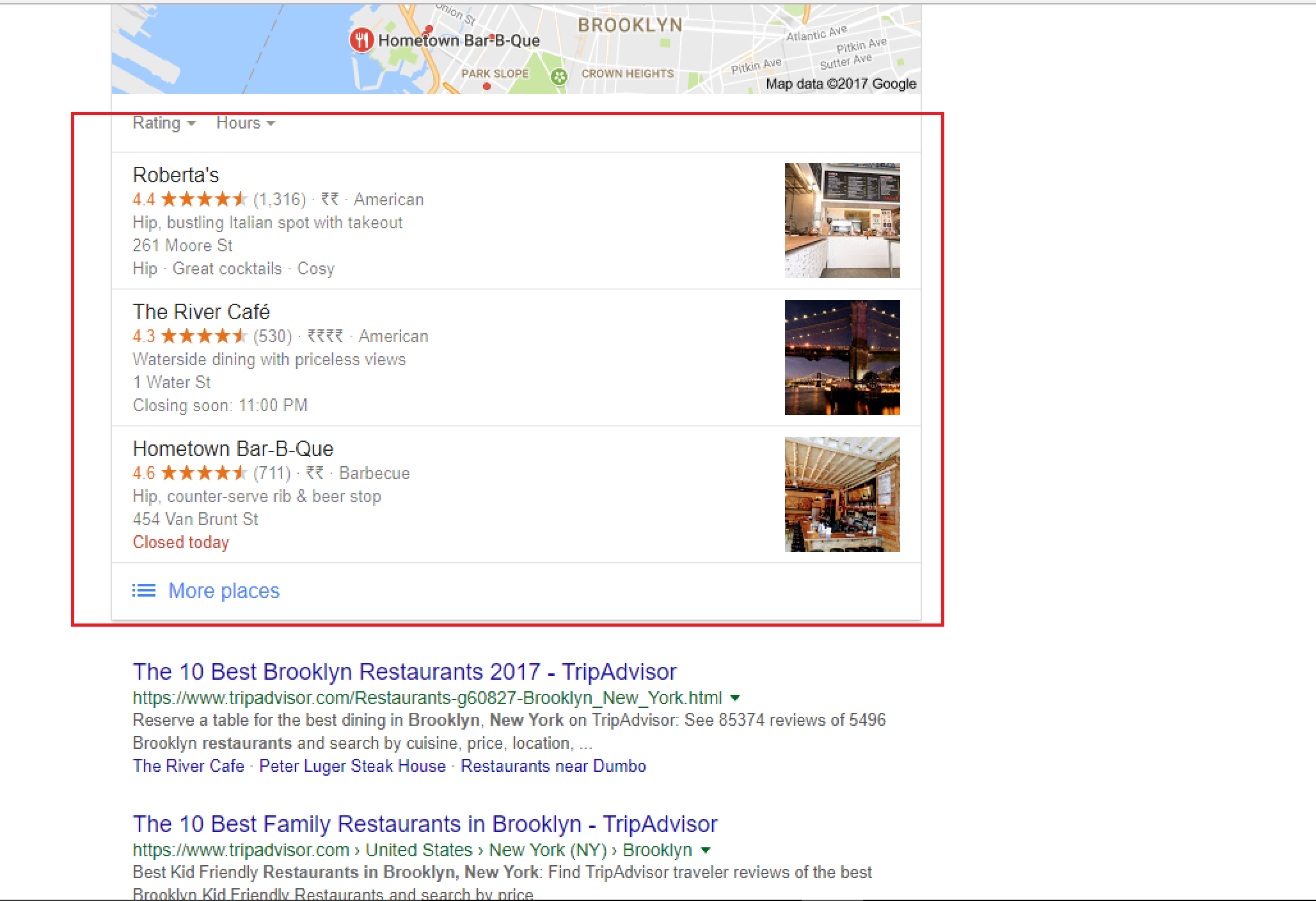For all we know, SEO is one of the most imperative aspects when it comes to establishing the online presence of a business. In the present times, however, more than SEO it is the Local SEO that is becoming exceedingly significant for any business. The reason behind it is simple. Since the year 2011 searches with the suffix near me have multiplied by 34 times. In fact, today, about 50% of the customers visiting a store/business in a day, are prompted by local searches. Now, those are some figures you simply cannot ignore.
So how exactly do you go about ensuring an efficient Local SEO strategy for a business? Well, it is rather simple. All you need to do is take the following steps
-
Ensure a correct and verified ‘My Business Listing’ on Google
-
Make sure the business’ website is SEO optimised and is user-friendly
-
Maintain an active local blog
-
Make sure the Name, Address and Phone Number (NAP) of the business is consistent across all channels
-
Spur high-quality backlinks
-
Ensure a compelling presence of social media platforms
That being said, it cannot be denied that Local SEO is easier said than done. As a matter of fact, a large number of businesses get it wrong at some point or the other. Read on to know whether you’re getting wrong with any of the following aspects –
Overlooking the Competition
Google’s Local Pack has increased the underlying opportunities for Local SEO by manifolds. Today, a little above 90% of the searches are directed towards local businesses which gives an upper hand to small enterprises over the large corporates. However, this doesn’t mean that small businesses can sit back and relax without worrying about the competition.
In fact, every business, irrespective of scale must conduct a comprehensive competitive analysis to understand the SEO content of the competition, analyse their traffic and accordingly tweak its own SEO Strategy. Here, simply targeting the keywords that aren’t used extensively by the competition can do the trick.
Opting for the Wrong Categories
For any business to come to the limelight in searches, it needs to be categorised on Google’s ‘My Business Page’. The categories that are chosen for the business not only helps Google to determine the type of business and the kind of services offered but also help the local customers find your name in relevant search results.
Hence, picking the wrong categories could mean that you end up in a pickle. It can have an adverse impact on the business’s ability to rank. This doesn’t mean that you go on picking every category that the business is even remotely related to. In fact, it is the opposite. Google suggests that a business must pick as few categories as possible, but these must be the categories that represent the business in the best and the most extensive manner possible.
For example, Butcher Block is a food delivery service serving the areas of Manhattan and Brooklyn. It doesn’t own any restaurants and hence cannot offer seat-in dining services. Hence, it makes more sense for the brand to use categories like ‘Multi-Cuisine Takeout’, ‘Pizza Delivery’ or ‘Rice Bowls Online’ as opposed to ‘Multi-Cuisine Restaurant’ or ‘Brooklyn Restaurants’
Overlooking The Reviews
It is extremely important for any business to understand the significance of online reviews. More often than not, people only click on businesses which enjoy a good rating or have positive reviews. Given that search results on Google are now accompanied by the ‘Star Rating’ of any business, the impact of reviews, positive or negative, has grown tremendously.
In case of negative reviews it becomes highly unlikely for a potential customer to click on the link to the business. This, in turn, hurts the SEO. So much so, that beyond a point the business listing simply stops appearing in the search results, at least in the first few.
See the below example for a greater perspective.

Notice how only those Brooklyn Restaurants make it to the top of search results which have great ratings and positive reviews!
Duplicate Content
More often than not, concentrating on Local SEO leads businesses to end up with duplicate content. Needless to say, this is highly deterrent for SEO marketing and may do more harm than good for the business.
Duplicate content may come up in the form of –
-
Duplicate NAP (Name, Address, Phone Number) listings.
-
Several web-pages with similar content, only with different locations.
-
Duplicate product descriptions.
-
Duplicate customer reviews.
While in most cases, duplication leads to lower ranking on SERPs, however, in case of excessive duplication of content, Google Bots may even entirely remove the business website from the search index.
Hence, it is the best interest of a business to avoid duplication at all costs. If in case, it is absolutely required, Google suggests the use of noindex meta tag on the duplicated pages. If needed, you can take the help of SEO Tools to this end.
Mounting Number of Links
When it comes to enjoying greater visibility by small businesses, making sure that the NAP appears in almost all relevant searches proves to be an ideal strategy. In addition, this helps the business enjoy enhanced link-building opportunities.
However, in a bid to get popular, many businesses end up linking their NAP to numerous local directories, without paying heed to the quality of the backlinks. While these may be easy to get, the fact of the matter is they harm the SEO efforts. Hence, it is not the number of backlinks that a business should bank upon, but the high value of these links. Trust us, this is one of the most important Search Engine Optimisation tips that you’ll come across.
Now that you’re aware of some of the most common and rampant aspects that businesses go wrong with, we bet you will only put your money where your mouth is!













